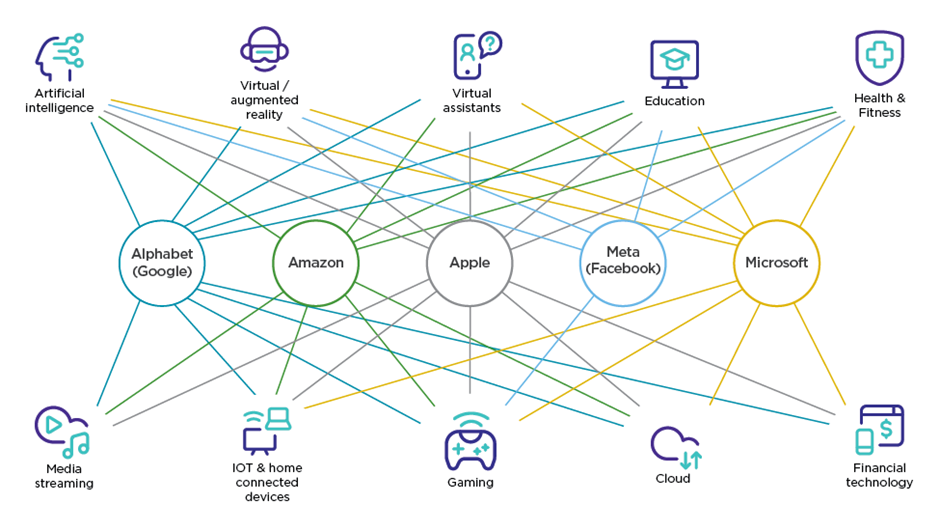
The ACCC will examine the expanding ecosystems of digital platform service providers in Australia as part of its’ five-year Digital Platform Services Inquiry.
Large digital platform service providers, like Alphabet (Google), Amazon, Apple, Meta (Facebook) and Microsoft, continue to invest heavily across different sectors and technologies, creating a web of interconnected products and services.
“Australian consumers and businesses are increasingly reliant on the products and services offered by digital platforms so it’s crucial we examine how these companies are expanding their reach,” ACCC Chair Gina Cass-Gottlieb said.
An issues paper, published today, poses questions and seeks submissions from consumers, businesses and interested stakeholders about the investment decisions made by digital platforms, the interconnectedness of expanded products and services within each ecosystem and the potential impacts on competition and consumers.
The interim report will examine products and services offered by digital platform service providers across a variety of sectors and will use examples like the expansion into consumer cloud storage and smart home devices to analyse the relationships between digital platform services and various services offered in their digital platform ecosystems.
“We’re eager to hear from consumers and business about their experiences with digital platform services within these ecosystems, and how they also use other related consumer cloud storage services and smart home devices within a digital platform ecosystem,” Ms Cass-Gottlieb said.
“Large digital platforms have become an integral part of our daily lives, they have access to enormous user data bases and personal information across their ecosystems.”
“This report will assess how that data can leveraged across products and services within an ecosystem that may prevent businesses from entering and competing,” Ms Cass-Gottlieb said.
The interim report will also examine the expansion strategies used by digital platform service providers and how this has affected interoperability of products and services across ecosystems and if it has increased consumer lock-in behaviours or other conduct like bundling, tying or self-preferencing to inhibit competition.
Excessive collection and potentially problematic use of personal data or other behaviours such as dark patterns to confuse or manipulate consumers will also be considered.
“Interconnected products, like smart home devices and cloud storage solutions, can provide consumers with a seamless experience that simplifies everyday tasks, but it’s important that competition and consumers are not harmed as digital platforms invest across different sectors and technologies and expand their reach,” Ms Cass-Gottlieb said.
Submissions are due by 5 April 2023 and can be made by emailing digitalmonitoring@accc.gov.au(link sends e-mail).
Background
The ACCC’s Digital Platforms Branch is conducting a five-year inquiry into markets for the supply of digital platform services in Australia and their impacts on competition and consumers, following a direction from the Treasurer in 2020. The inquiry reports to the Treasurer every six months and examines different forms of digital platform services, their advertising services as well as data brokers.
This issues paper will inform the ACCC’s seventh report due to be submitted to the Treasurer by 30 September 2023. The ACCC’s sixth report on competition and consumer issues relating to social media services in Australia is due to the Treasurer by 31 March 2023.
Previous reports are published at Digital platforms services inquiry 2020-25.
Notes to the editor
‘Bundling’ refers to where a supplier only offers two products or services as a package, or for a lower price if the two products or services are purchased together.
‘Dark patterns’ refers to the design of user interfaces intended to confuse users, make it difficult for users to express their actual preferences, or manipulate users into taking certain actions.
‘Self-preferencing’ refers to where a platform gives preferential treatment to its own products and services when they compete with products and services provided by third parties using their service.
‘Tying’ in this context refers to when a digital platform makes access to a service conditional on using another service.
